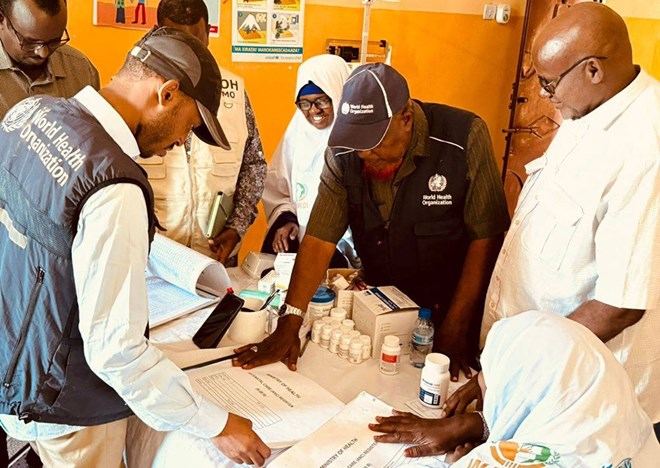
Tuesday June 11, 2024

Mogadishu (HOL) — Amid a severe humanitarian crisis, Somalia's vulnerability to disease outbreaks is high. The country has taken a major step to address this by implementing the Integrated Disease Surveillance and Response (IDSR) system, a move that promises to transform public health responses.
In collaboration with the World Health Organization (WHO) Regional Office for the Eastern Mediterranean and the WHO Country Office in Somalia, Somalia has strengthened its multi-disease surveillance system. The IDSR system consolidates real-time health data using the District Health Information Software 2 (DHIS2), allowing health workers to record and analyze data for early outbreak detection and response.
"IDSR has enabled the Ministry of Health and Human Services to stay ahead of the public health events and safeguard the health of our communities by detecting outbreaks early," said Dr Sahro Isse Mohamed, Head of the Integrated Disease Surveillance and Response Unit, Ministry of Health and Human Services, Federal Government of Somalia.
Since its implementation, the IDSR system has been crucial in detecting cholera, diphtheria, and pertussis alerts. Health workers have been trained to develop weekly epidemiological bulletins, which are shared with stakeholders for decision-making and resource coordination. These efforts have significantly reduced disease-related morbidity and mortality.
WHO Somalia supported developing a three-year, multiphase operational plan for IDSR implementation. The plan includes technical guidelines, standard operating procedures, and training materials tailored for health workers. Phase one, completed in 2023, trained health workers from 371 out of 620 health facilities, surpassing the target coverage. By the end of 2023, these facilities reported on 42 priority conditions. Between weeks 3 and 13 of 2024, the number of reporting facilities increased to 409, with 80% of trained facilities regularly submitting surveillance data.
The plan's second phase, which began in January 2024, focuses on improving data quality, linking surveillance data with laboratory information, enhancing data usage at the subnational level, and monitoring the IDSR system's implementation through supervision and stakeholder review meetings.
The planning for IDSR began in 2020. By 2021, Somalia had a functioning IDSR system. In 2022, guidelines and training materials were developed to build health workers' capacities. The final phase of the operational plan, set to be completed in 2024, aims to provide a comprehensive approach to public surveillance of priority diseases and response needs.
Somalia is also working on implementing event-based surveillance at the community level and strengthening its public health laboratory capacity for the timely diagnosis of priority diseases. Rapid response teams will be trained to address emergencies within communities. Plans are also in place to establish surveillance and response systems for antimicrobial resistance and maternal and perinatal deaths.